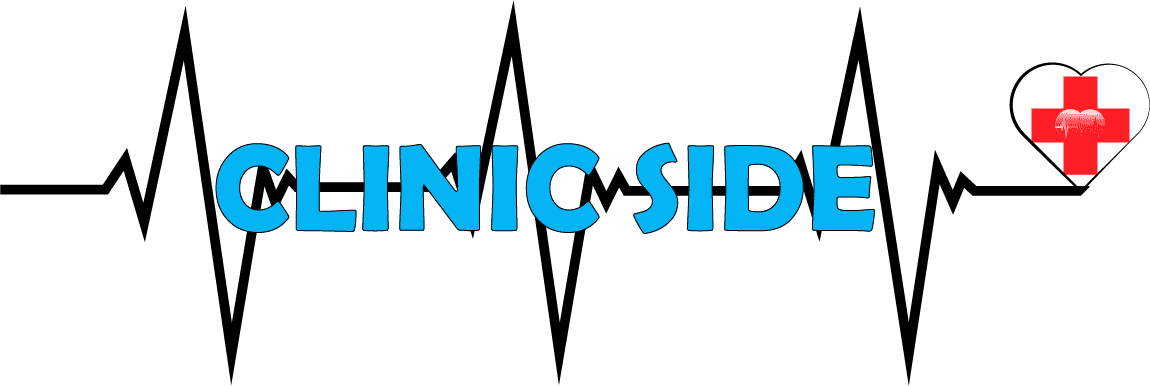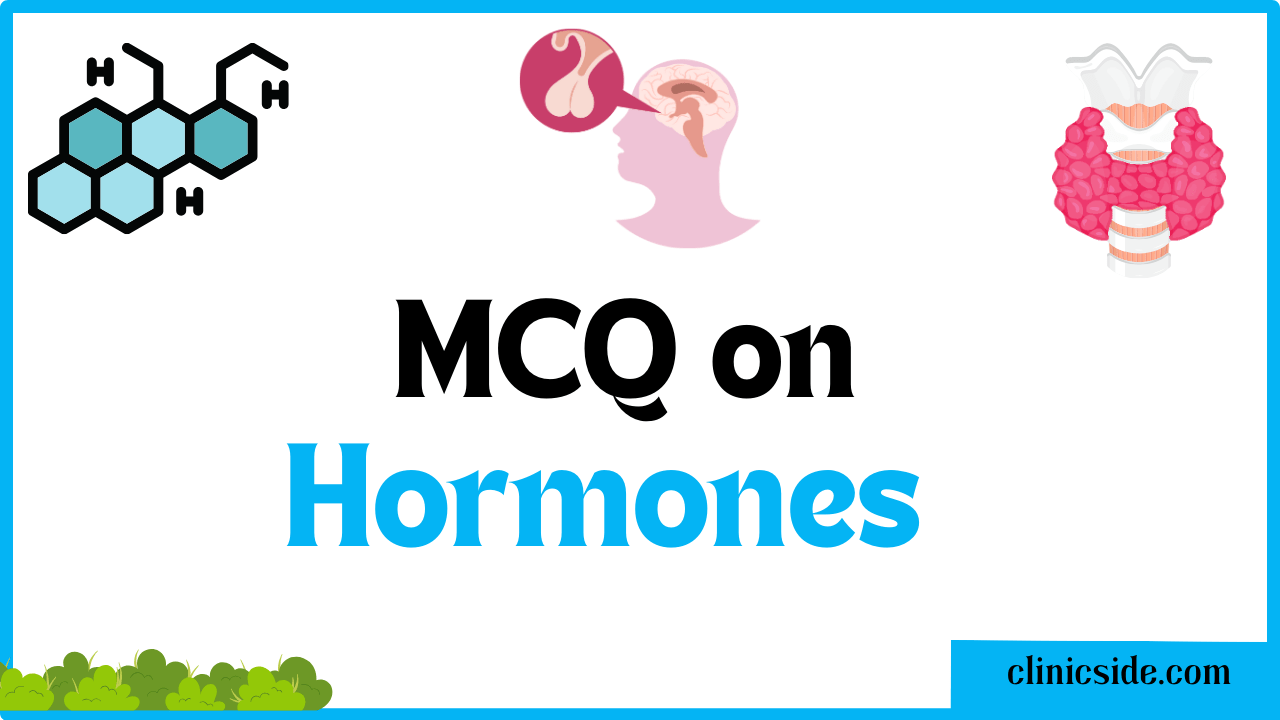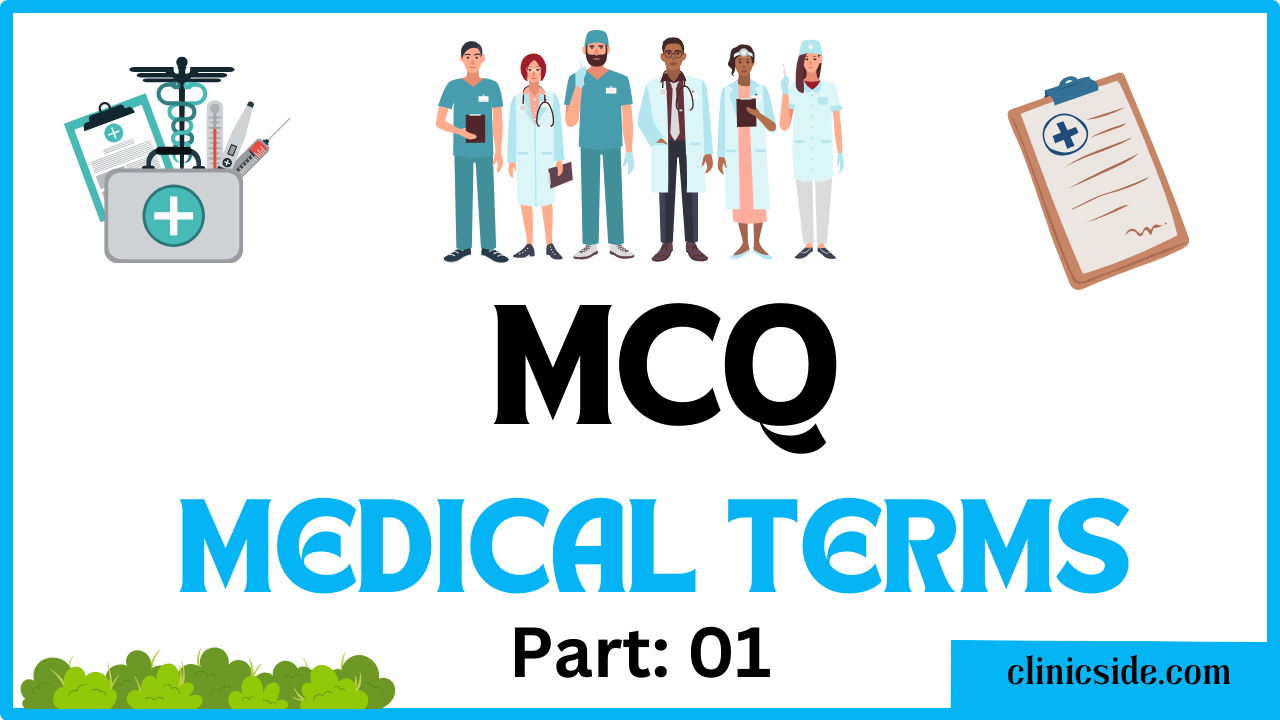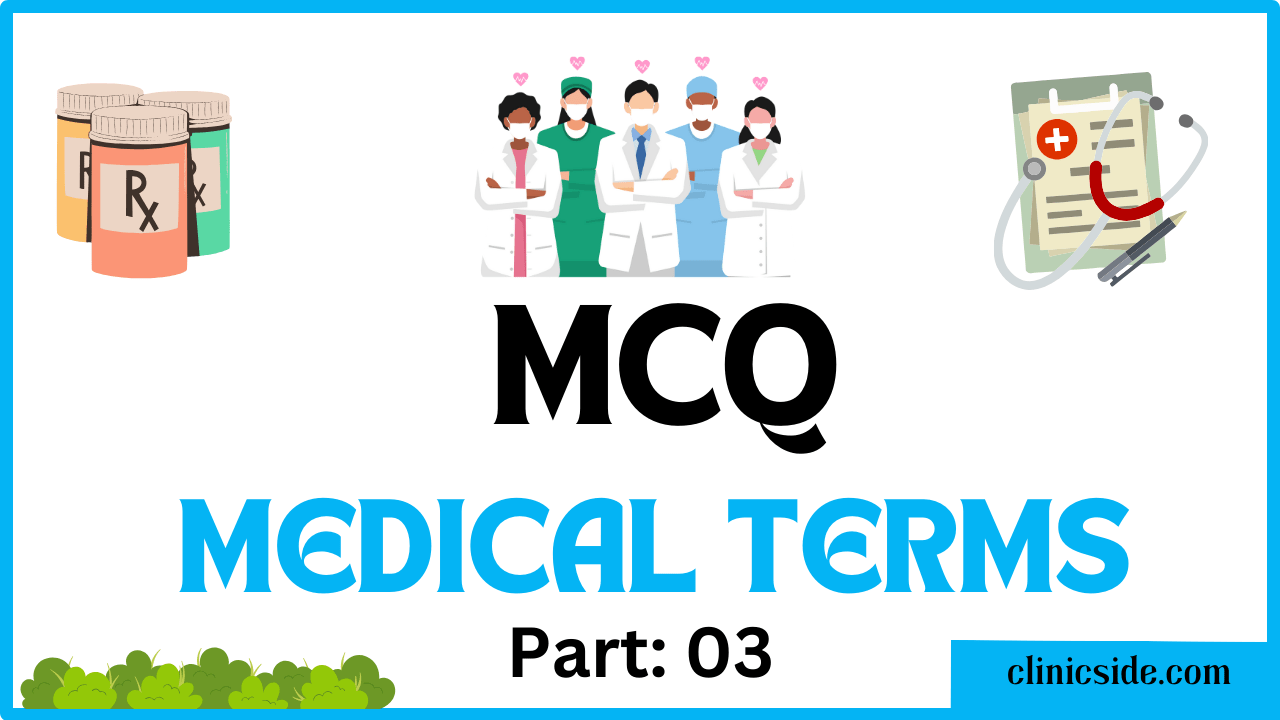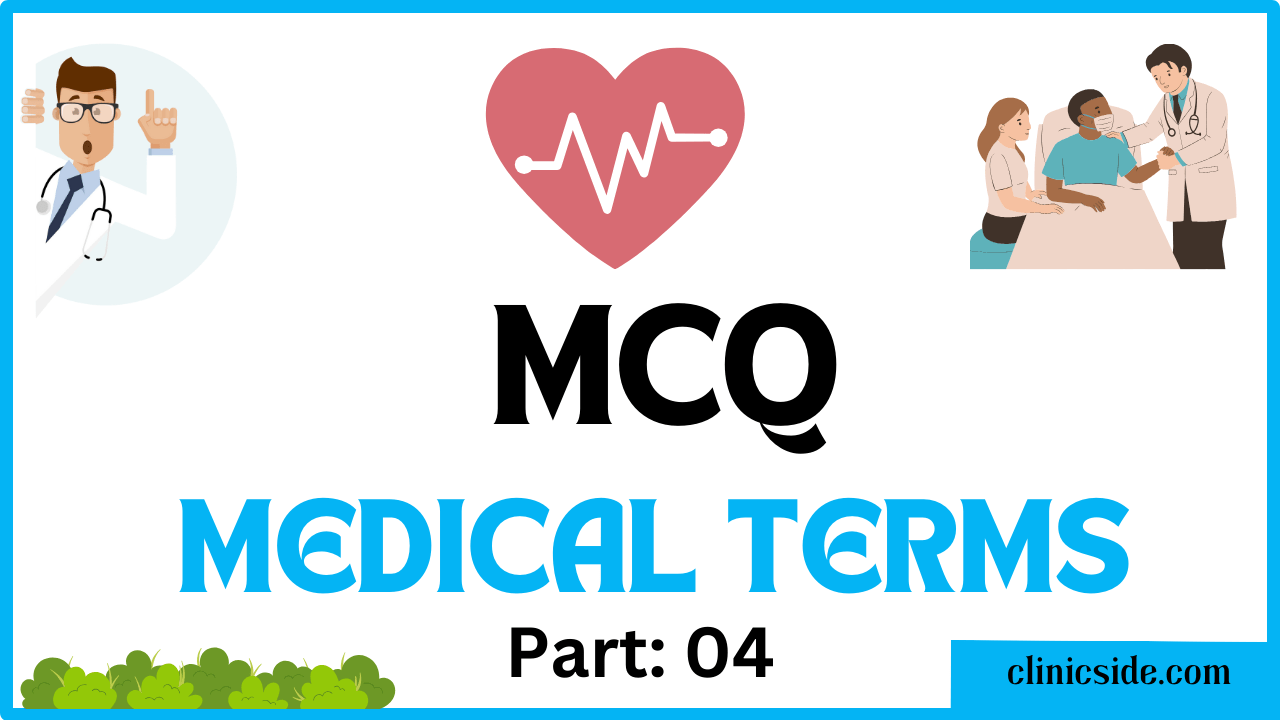Quiz
Available options: 1 to 20
Pre-Quiz Discussion On Hormones:
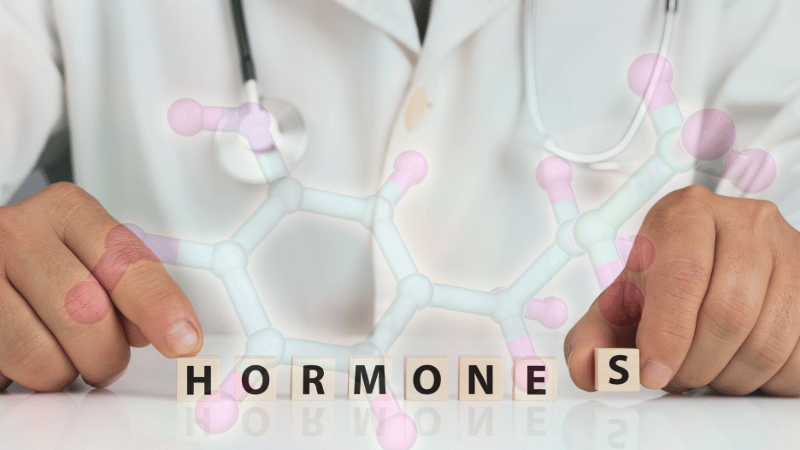
Hormone Sources in the Human Body
Endocrine Glands and Hormone Production:
Pituitary Gland:
Located at the base of the brain, the pituitary gland is often referred to as the “master gland” as it controls several other endocrine glands.
Produces hormones like growth hormone (GH), thyroid-stimulating hormone (TSH), adrenocorticotropic hormone (ACTH), among others.
Thyroid Gland:
Situated in the neck, the thyroid gland releases hormones crucial for metabolism and growth, such as thyroxine (T4) and triiodothyronine (T3).
Adrenal Glands:
These glands, positioned atop the kidneys, secrete hormones like cortisol (regulates stress response), adrenaline (epinephrine), and aldosterone (regulates salt and water balance).
Pancreas:
Produces insulin and glucagon, vital for blood sugar regulation.
Pineal Gland:
Found in the brain, it synthesizes melatonin, regulating sleep-wake cycles and circadian rhythms.
Reproductive Glands:
Ovaries (in females):
Release estrogen and progesterone, influencing menstrual cycles, pregnancy, and secondary sexual characteristics.
Testes (in males):
Produce testosterone, crucial for sperm production, sexual development, and male characteristics.
Other Sources:
Hypothalamus:
While not a gland, the hypothalamus produces releasing and inhibiting hormones that regulate the pituitary gland’s hormone secretion.
Placenta (during pregnancy):
Secretes hormones like human chorionic gonadotropin (hCG), estrogen, and progesterone to support pregnancy.
Adipose Tissue (fat cells):
Releases hormones called adipokines, playing a role in metabolism regulation.
Gastrointestinal Tract:
Certain cells in the stomach and intestines produce hormones that aid in digestion and appetite regulation.
Importance of Hormones:
Hormones are like messengers inside our bodies, guiding and affecting many different things that our bodies do. They help regulate metabolism, growth and development, reproduction, mood, stress response, and many other bodily functions.
Test Guidelines and Time Limit:
Guidelines for Maximizing Your Quiz Experience:
Read and Understand:
Carefully read each question related to Hormones and ensure you have a clear understanding of the concepts before selecting your answer. This will help you make informed choices and avoid misconceptions.
Choose the Best Answer:
Evaluate all available options before selecting the one that aligns best with your knowledge of Hormones. Strive for accuracy and relevance in your responses.
Time Management:
The quiz has a time limit based on the number of questions you choose. Allocate 45 seconds per question. Manage your time wisely to complete all questions within the allotted time.
Efficient time management increases your likelihood of successfully completing the quiz and submitting your answers within the designated timeframe. Best of luck!
